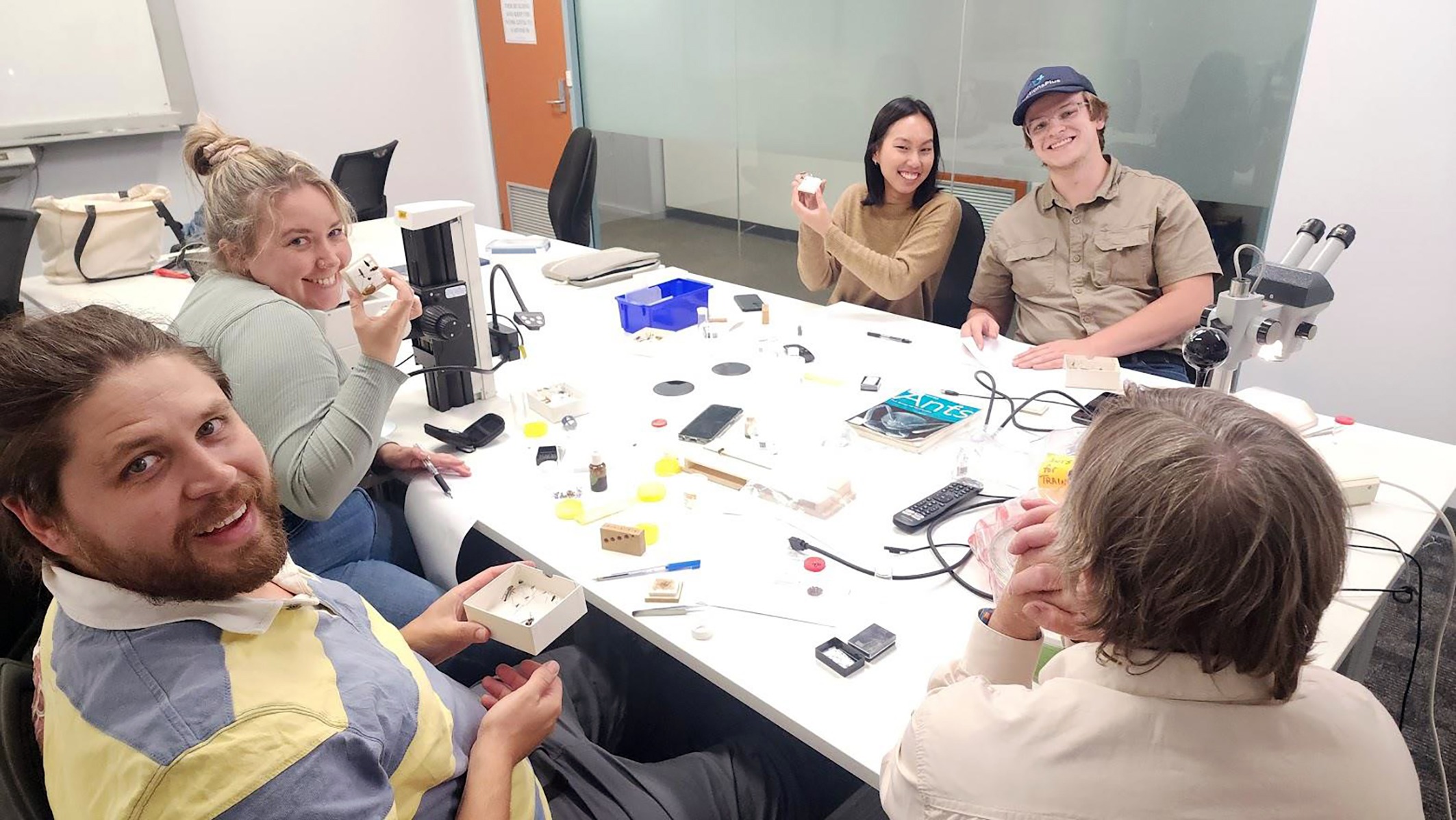

NSW DPI biosecurity internship experience for NSW university students
March 30, 2023

An ongoing partnership between our NSW Committee and the NSW Department of Primary Industries continues to provide NSW university students the opportunity to undertake a six-week plant biosecurity summer internship each January in plant health, biosecurity, and diagnostics. Tirza Winarta and Harry Paine from the University of Sydney, and Alyce White and Alex Birkner from the University of Western Sydney were the successful recipients of the latest Crawford Fund-supported intake.
“The students started their experience in Sydney where they worked with researchers at Elizabeth Macarthur Agricultural Institute (EMAI), spending hours in the pathology diagnostic lab and having sessions with the new entomology and varroa diagnostics team and touring the insectory and learning about the insecticide resistance research underway,” said Dr Sophia Callaghan, DPI plant pathologist and course coordinator.
The internships are very hands-on and included field trips to vegetable and cut flower farms, the new herbarium at mount Annan and the Royal Botanic Gardens in Sydney, where they learned about tree diseases and biosecurity threats to forestry.
“At the Orange Agricultural Institute, the focus moved to entomology with an introduction to taxonomy and major pest Orders and discussions on how dichotomous and interactive digital keys are constructed. They also looked at the differences in protocols for processing insect specimens versus the plant and fungal specimens they had worked previously. They learned light trapping techniques for collecting insects, and how to identify and prepare these insects for collections using pinning and point mounting methods,” she said.
“Working with herbarium staff the students gained insights into rust fungi, macro fungi, techniques for preserving living cultures of fungi and bacteria and curation practices.
Students also worked with CSU entomologists on research trials in vineyards, met with soil microbe scientists, food scientists and agritechnology and horticulture researchers,” she said.
“Overall feedback on the program was very positive, with the students valuing the one-on-one format and direct access to a wealth of knowledge and experience from a variety of institutions and career paths,” she concluded.
More details about the program can be found at:
https://www.dpi.nsw.gov.au/about-us/services/collections/internships




